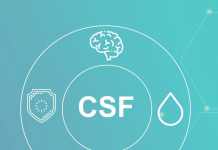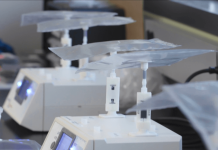MintNeuro, a pioneer of scalable, low-power semiconductor technology for minimally-invasive neural implant applications, announced it has raised 1 million GBP in a funding round led by Empirical Ventures. Additional investment came from Parkwalk Advisors (through the Imperial College Enterprise Fund), Imperial College London, Plug & Play, Excellis Holding, and several angel investors.
Neurological disorders impact over a billion people globally and pose a significant social and economic burden. Current treatments, especially pharmaceuticals, are often ineffective or fail to provide long-term solutions. With drug development becoming increasingly costly and less productive, many patients are left without effective care options.
Neural implants offer a promising alternative, yet traditional technologies remain bulky, power-intensive, and reliant on invasive surgeries that limit accessibility and increase patient risk.
Developed at Imperial College London, MintNeuro uses semiconductor technology to make neural implants smaller, more efficient, and scalable. With over 14 million GBP in underpinning R&D grant funding to date, the MintNeuro team leverages semiconductor manufacturing to allow cost-effective, mass-producible neural devices.
Unlike conventional implants, its compact, low-power chips enable modular designs adaptable to various neurological conditions, offering sensing, stimulation, and processing capabilities to enhance both functionality and accessibility.
“Our semiconductor-based approach is fundamentally reshaping what neural implants can achieve,” said Timothy Constandinou, CTO and co-founder of MintNeuro. “By offering a customisable, compact solution that integrates seamlessly into medical devices, we’re empowering a new era of neural interfaces that are not only more powerful but also less invasive. This marks a transformative shift in neurological care.”
“Millions of patients with neurological disorders face limited treatment options,” said Dorian Haci, CEO and co-founder of MintNeuro. “Our goal is to bridge that gap with safer, more accessible, and effective neural technology. This investment accelerates our chip development and enables us to expand our team of experts, bringing game-changing neural implants to clinicians for the benefit of patients everywhere.”
MintNeuro’s innovative semiconductor solutions have already gained considerable traction through strategic partnerships with leading institutions and medical device companies. Collaborations include the NIHR-funded DREAM project with Imperial College London and King’s College London and Hospital, targeting development of a breakthrough device for epilepsy monitoring, with a first-in-human study planned for next year.
Additionally, MintNeuro’s partnership with Amber Therapeutics, which has recently secured 100 million USD in funding, is focused on developing a neuromodulation therapy chipset through an Innovate UK Smart grant. This technology initially targets mixed urinary incontinence, with the potential for future applications of the MintNeuro chipset in conditions such as Parkinson’s disease, dementia, and depression.
“MintNeuro is uniquely addressing the core limitations of neural implants with a semiconductor-based approach,” said Johnathan Matlock, General Partner at Empirical Ventures. “We are excited about the market opportunity and the potential of entrepreneurial scientists like Dorian and Tim to drive forward the next generation of neural implants.”
The global neural implant market is experiencing rapid growth, with rising interest from major healthcare and technology players. Recent Morgan Stanley research estimates that, in the US alone, the Total Addressable Market (TAM) for brain-computer interface (BCI) technologies could span almost 10 million patient candidates – seeking optimised treatment options for health conditions ranging from multiple sclerosis to strokes – and total around 400 billion USD in potential revenue from initial implant procedures.
Martin Glen, Investment Director at Parkwalk Advisors added: “MintNeuro’s innovative technology has the potential to change the lives of millions of patients suffering from a diverse range of neurological conditions. Its accessible, adaptable solution represents a major advancement in treatment options, and we’re extremely excited to be supporting the team in its journey to revolutionise neurological care.”




